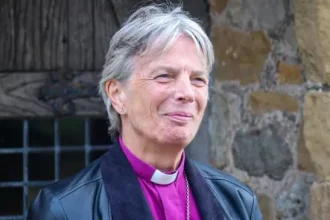The traditional ruler of Umudike Ukwu community in Ikwuano Local Government Area of Abia State, His Royal Majesty Eze Ben Oriaku, has dismissed claims suggesting that the Abia State Government is silencing traditional rulers across the state.
Addressing journalists, Eze Oriaku firmly denied the allegations, emphasizing that the government’s intentions were to uplift and reform the traditional institution rather than suppress it.
He explained that contrary to the reports, no monarch in the state has been muzzled.
Instead, the government organized an orientation session aimed at guiding traditional rulers on proper conduct, especially in public engagements.
“At least I am here and I am free. Nobody is gagging me. We were taught to know that people are looking up to us.
“We were taught that it is absurd to see a traditional ruler on Okada. There could be breakdown on the road. There could be challenges. But the situation where you dress in your regalia, enter bike, in the New Abia, is not wise.
“These were the things we were taught. You will see Onyeze eat publicly anyhow. Onyeze will attend a function dressed in English attire. It does not go well. So these rules are the lessons we were taught,” the royal father explained.
Highlighting some of the positive strides of the current state administration, Eze Oriaku applauded the improved welfare of traditional rulers, revealing that their monthly earnings had been significantly upgraded.
He recalled that under previous administrations, the payments were so meager that many traditional leaders struggled to meet expectations in their communities.
Speaking further, he commended the current state of environmental cleanliness in parts of Abia but raised concern over the waste management challenges facing World Bank Estate, PIU Umudike.
The monarch urged the Abia State Environmental Protection Agency to urgently intervene.
He pointed out that drainage channels in the estate frequently overflow during rainfall due to blockages, leading to serious flooding.
He also noted that the waste collection bins serving the estate, which accommodates about 2,000 university students, often overflow with refuse.







